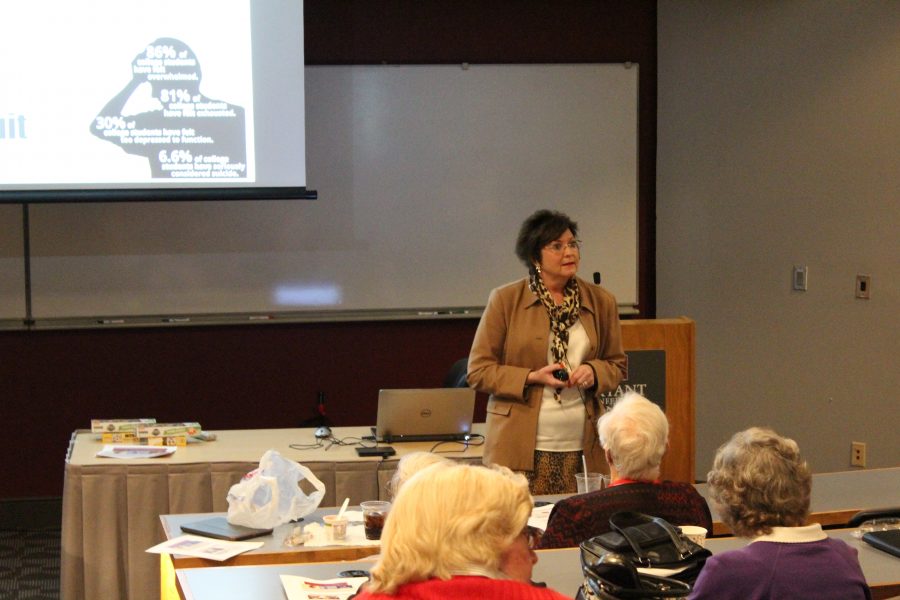Her lecture started by identifying the term “resilience” and its meaning, which is adapting to life’s misfortunes and setbacks. She then went over some psychologically proven factors that improve resilience, such as a positive attitude, the ability to regulate emotions and the ability to see failure as a form of helpful feedback.
Because Purcell’s audience was comprised mostly of adults, she explained that it is not just children or students who lack resilience, but rather everyone can suffer. She challenged the audience to think beyond blaming children for lacking perseverance and recognize that adults are quick to quit, too.
While she used students’ inability to accept receiving a “C” on a test as example of lack of resilience, she used giving up on weight loss as an adult example.
“If you really want to achieve your goal, you have to persist, despite an outcome that you didn’t desire,” she said.
Purcell discussed with the audience about adults giving up on happiness and settling for less than they hoped in certain aspects of life.
“We give up on the opportunity of having the good life, not only that we desire, but that we deserve,” she said.
She said people need to align expectations of a good life with reality because not everyone’s perception of a good life can be one from a children’s book they read or heard about in the past.
“Our storybook life that they told us about may not look like the life that we have today, but it can still be a really good life,” she said. “But we have to understand how we react to that.”
The importance of not dwelling on the past, being involved in the community and improving self-determination and self-worth are the keys to building resilience, Purcell said. The action steps needed in order to increase one’s resilience are to choose to be positive, choose to be forward thinking and choose to be connected to community.
“I liked [the lecture] because [Purcell] was able to connect with a younger and older audience,” said Abbie Collins, a sophomore majoring in advertising. “Resiliency is something that applies to every age, and she really focused on that in her lecture.”
At the University, Purcell works with students on campus that need help building resiliency. She provides the skills needed to be successful through two programs called RISE — which stands for responsibility, initiative, service and expectations — and LIFE, which stands for labor, influences, forgiveness and experiences.









